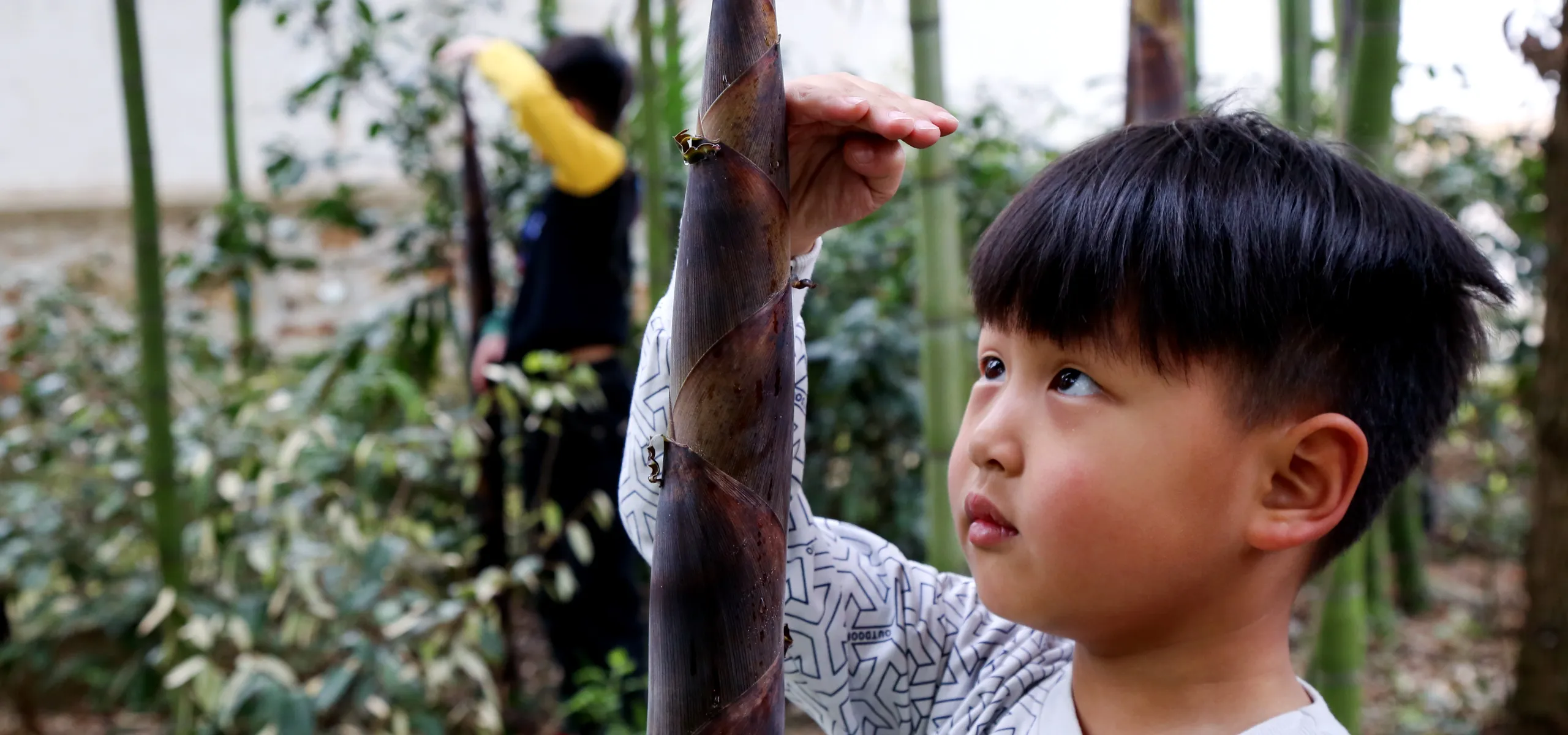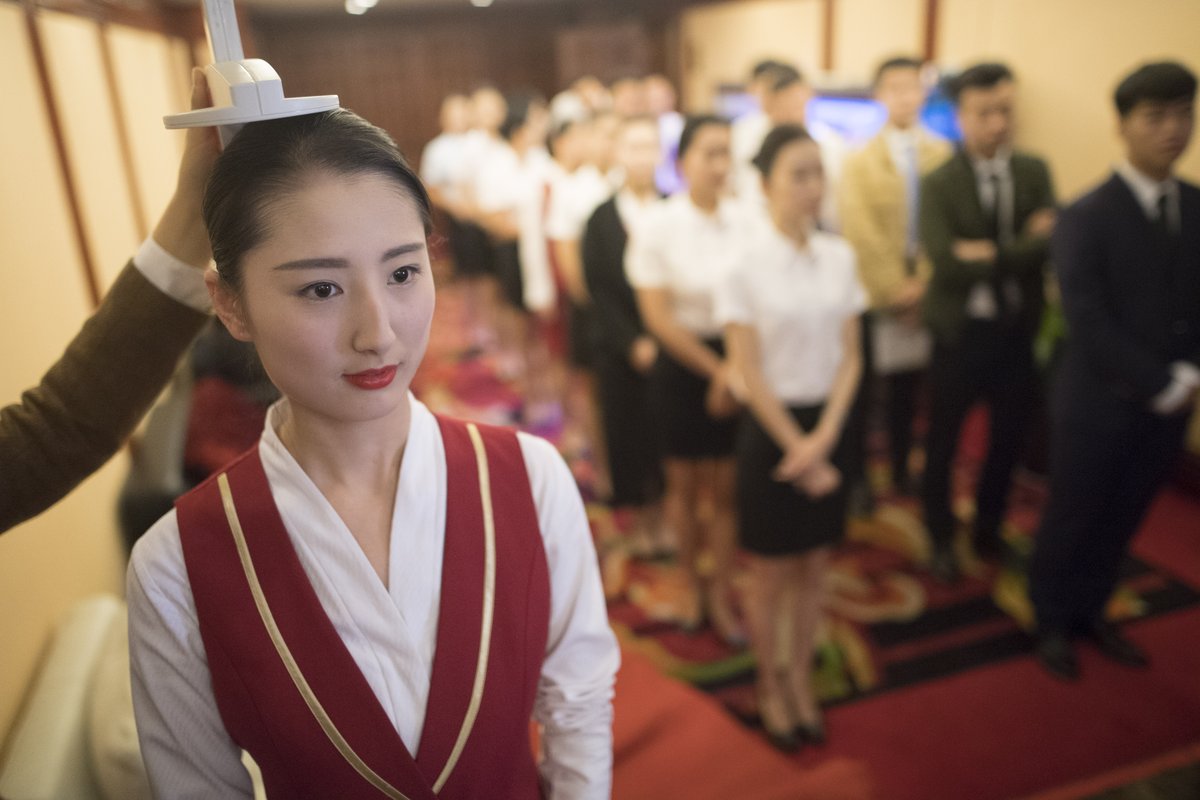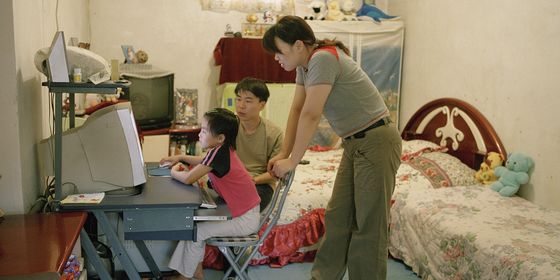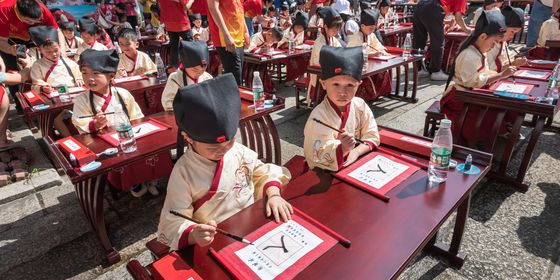Faced with still-rampant height discrimination in society, Chinese parents go to great lengths to make their kids tall
Jiang Yong, a 32-year-old programmer from Hubei province, still remembers when his fourth-grade teacher asked him to repeat a grade—for no other reason than because he wasn’t as tall as his classmates. “My grades weren’t too bad in elementary school,” he recalls with a chuckle.
Today, at a height of 162 centimeters (5 foot 3 inches), Jiang is the shortest in his family and below the average height of 175.7 centimeters (5 foot 8 inches) for 19-year-old males in China, according to 2020 figures published in British medical journal The Lancet—and still below the more conservative estimate of 169.7 centimeters (5 foot 6 inches) for adult males from the State Council, China’s cabinet, the same year.
Growing up, Jiang felt he was too short to try out for sports. As an adult, he has had other experiences that he suspects were due to people’s negative reaction to his height: such as being rejected by partners at the swing dance events he regularly attends in Beijing or, once, at a speed-dating masquerade, where the participants couldn’t see each other’s faces.
“I think being short does give you a sense of inferiority...and being tall gives you an advantage in dating and other areas,” he tells TWOC. “I’m already an introverted person, so in addition to my height, I don’t get much attention in social settings and I feel like I don’t fit in.”
Height discrimination is not unique to China: Various studies around the world have suggested that height is correlated with higher earnings and career advancement. But the problem is heightened here, with intense competition for job and educational resources, and little public consensus on discrimination.
Few countries in the world specifically prohibit employers from discriminating against job-seekers on the basis of height. Though a few states in the US have legislation against “arbitrary” job discrimination, and the US Equal Employment Opportunity Commission advises employers against inquiring about applicants’ height, it is not a protected characteristic at the federal level (unlike race or gender).
In China, Article 33 of the Constitution states that all citizens are “equal” before the law, but this may be too broad to affect discrimination on an individual level. It’s still routine to see job ads openly list minimum height and other aesthetic requirements for non-physical roles, such as customer service or even nursing, and this has led to several attempted lawsuits.
To date, only one has made it to court: the 2002 case of Jiang Tao, who sued the Chengdu branch of the People’s Bank of China for advertising a civil service role that required male applicants to be over 168 centimeters tall and female applicants to be over 155 centimeters. As the bank later removed the requirement, the court rejected Jiang’s claims.
Anxious about their children's chances of success, today’s parents are taking active measures to ensure that their children don’t (literally) fall short of the competition in the future job and dating market. Up to the start of the pandemic, the Changchun High-Tech Group, China’s leading producer of human growth hormones, saw its market value increase over 100-fold since it first began trading publicly in 2008.
Known colloquially as “height-increase shots (增高针),” growth hormone injections are one of the more extreme methods that parents have turned to in hopes of taller kids. Another is having their school-aged children assessed for “bone age” to determine whether they are likely to start puberty early (thus finish growing earlier than their peers), and getting puberty blockers. In a 2021 report by China Youth Daily, a Chongqing clinic specializing in bone age assessment said it could receive up to 100 bone X-rays of children per day from various hospitals, and up to 200 during the summer holidays.
Besides medical interventions, parents also resort to lifestyle changes and folk remedies. Growing up, Jiang Yong’s parents gave him calcium pills to eat, and he tried to exercise more in college in hopes of gaining a few more centimeters.
From Fujian to Hunan, readers of popular WeChat parenting blog Drpei, run by pediatrician Pei Honggang, have reported folk beliefs like eating chicks for increasing height, and a Baidu forum simply called “Height” sees netizens sharing their exercise, diet, and sleeping plans and copies of their children’s bone scans, as well as commenting on the height of various celebrities.
Zhu Tianli, a mother of a 3-year-old in Hangzhou in eastern China’s Zhejiang province, started worrying about her son Daniel’s height when he was 2. “Actually, if you look at national standards, my child is in the 50th percentile. But for some reason, wherever we went, people would say he was small [for his age],” she says.
She hasn’t resorted to medical interventions, but knows others who have. A family friend started growth hormone injections for her son when he started elementary school, as he was 10 centimeters shorter than his classmates. “The shots cost about 10,000 yuan a month...and there are health risks, but parents know this,” she says. “On [short video app] Douyin, I’ve seen other families do the same, and they are not wealthy people. There are plenty of middle-class families doing this for their kids.”
In China, height discrimination appears to affect men strongly in dating: In 2020, a study in scholarly journal Youth Development Forum cited data from matchmaking site Shiji Jiayuan, which showed that over 80 percent of women want male partners who are taller than themselves, and only 2 percent are willing to accept a partner who is shorter. (No comparable statistics exist for men’s requirements for a female partner.)
In the workplace, it‘s women who may have a greater edge if they‘re tall: a 2014 study by Huazhong University of Science and Technology indicates that a woman’s salary increases 1.5 to 2.2 percent for every centimeter above the mean in white collar sectors.
Zhu says a friend of hers is still unable to find a partner despite having a house and a car and being a native of Hangzhou—all desirable traits in the local dating scene. They both attribute this to his height of just 167 centimeters. “He is not bad looking, either...but he feels very inferior,” she says.
She doesn’t want this for her son. “Look at [director] Guo Jingming or [actor] Huang Xiaoming...or [tech billionaire] Jack Ma,” she says. “My whole life, I could never be as successful as they are, but there are still people online making fun of them for being short, or accusing Huang Xiaoming of falsely reporting his height.”
As early as 1989, sociologist Li Yinhe surveyed 300 “partner wanted” ads in newspapers, and concluded that compared with other cultures, both Chinese men and women disproportionately listed height as a requirement in a spouse. Still, Li Guoliang, an accountant who grew up in Beijing in the 1970s, feels that the height obsession has been on a recent upswing. “We didn’t have much to eat when I was growing up, so this wasn’t our focus. But now that people have met their basic needs, they might be starting to care about this more,” he says.
China’s increasing average height has also been a point of national pride. The Lancet’s 2020 numbers, which showed China to be the third-fastest growing nation in the world height-wise since the 1980s, were hailed in domestic media as a sign of China’s economic growth and improved living standards in the last three decades.
Though Li Guoliang claims he has never cared about his height (which he reports as both 161 and 163 centimeters at different times during conversation with TWOC), nor ever discussed it with anyone until TWOC, he once bought special innersoles from a street market that added a few centimeters to his height. “It didn’t really matter at my job, since I just sit in an office...so it was mostly just to help myself psychologically. I stopped wearing them after a while,” he says.
Online, medical professionals such as Dr. Pei have warned about the overuse of hormone injections on kids with otherwise normal hormone levels, leading to risks like obesity, joint diseases, or heart disease. They note that as height is affected by various genetic as well as environmental factors, injections are not a magic bullet, nor are bone age assessments reliable in predicting a child’s future height.
Both Li and Jiang Yong say they’ve come to accept that they will never be tall, though both acknowledge that it helps not to work in a physical or customer-facing job. “There are some things you can’t change, so you can’t judge yourself based on what other people see as your weaknesses,” says Jiang.
Since China’s pandemic restrictions ended, Zhu has been able to see Daniel interact more with other kids of various heights. This has lessened her anxiety, but it hasn’t disappeared entirely. “If I take him for a bone assessment later on and the doctor says he won’t reach 168 centimeters, I’m not sure what I would do. But if they say he won’t even reach 161 centimeters, then I would definitely want him to get shots,” she says. “Just because I don’t discriminate against people based on height, doesn’t mean others won’t.”
That said, she emphasizes she will seek her son’s consent first, once he is old enough to understand the matter. “Our grandparents’ generation had less education, so they had more prejudices,” she says. “Now there are more voices in society telling us not to be anxious about our appearance, such as vloggers who go out without makeup [to encourage other women to do the same]. As our society evolves...maybe the next generation will have completely different opinions than we have now.”















